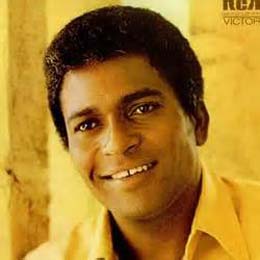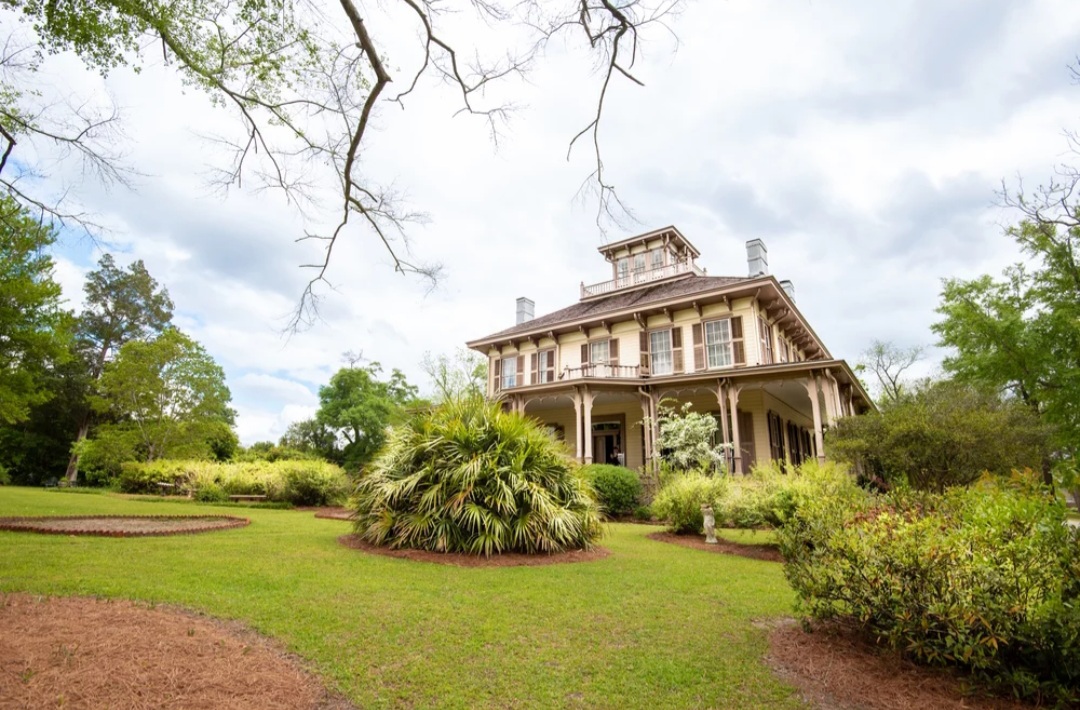
by Michael P. Coleman
The word “legendary” is used quite frequently these days, especially in the entertainment world. I think it needs to be earned, and few in the recording industry have done so as successful as country superstar Charley Pride.
Pride, 75, began recording professionally in 1965, after a promising career as a professional baseball player was cut short due to an injury. His biggest success came in 1971, when his “Kiss An Angel Good Mornin’” started a five-week run at the top of the country charts, became a Top 40 pop hit, and sold over one million copies. The single won Pride the Country Music Association’s prestigious Entertainer Of The Year and Top Male Vocalist awards, and he’d go on to win the latter award again the next year. Pride has sold over 70 million records, second only to Elvis Presley for RCA Records.
All of this would be remarkable enough for any singer, but it becomes even more impressive when one considers that Pride is African American. In succeeding as a country artist, he infiltrated a predominately white industry and, in a sense, beat Nashville at its own game. He became widely popular — becoming only the second African American to perform at the prestigious Grand Ole Opry, for example — not in spite of his race, but because he remained true to himself and took the novelty of his arrival in Nashville head on. He continues to record and perform dozens of dates annually, selling out venues all over the world.
Speaking to Pride by phone was one of the great honors of my career, and he is everything you’d hope for in a legend: warm, generous, and amazingly humble. He was candid about professional challenges he’s faced, his and his daughter’s bipolar disorder, and how his feelings about rap music have evolved since his eldest son told him he wanted to pursue a career as a rap artist! Pride also talked to me about Hollywood’s aborted plans for Dwayne Johnson and Terrance Howard to play him on the big screen — and the actor who’s associated with the role today — as well as the current state of country music, including country star Darius Rucker.
Hub: How does it feel to be considered a legend?
Pride: The thing is…I don’t think about it, I really don’t. I understand that I’ve been successful, but I just keep doing what I need to do, and keep moving on. I’d be lying if I said I knew it was going to happen. I didn’t. I’ve been blessed.
You were born into extreme poverty, into a sharecropping family in rural Mississippi. Did you decide early on to just be yourself and do what you do, or did that inspiration for structuring a career in country music come later?
You’re right — the life I’ve had is a long way from picking cotton back in Mississippi. Early on, I got a lot of stares. I heard a lot of “Boy, you’re crazy!” But when I listened to people singing, no matter what color they were, I figured if they could do it, I could do it. My oldest sister used to ask me “What are you doing singing THEIR songs? It ain’t gonna never git you nothin’!” ‘Course, now she don’t ask me that any more ‘cause I’ve bought her about two or three SUV’s…so she don’t do nothing but smile now. [Laughs] I used to have friends who’d say “Look at ol’ Charley! He thinks he’s white singing that music!” But how could I be that stupid as to look at this face in the morning, at this pigment, and think I’m white? I just do — and always did — what I do.
Before you established yourself as a country music star, you pursued a career in baseball. How’d that start?
I started it as a dare, just to prove to folks that I could do it. The thing about me is…don’t ever tell me what I can’t do. There are three words I really don’t like: “can’t”, “hate”, and “jealousy”. If we could eliminate those three, look at where we’d be. I didn’t realize that would rhyme…eliminate those three, and look where we’d be! [Laughs}
There might be another hit song in there somewhere!
That’s something I was never too good at. I like to sing other people’s songs ‘cause I wasn’t too good at writing. To be a songwriter, you have to say what you want to say with the least amount of words, and I’ve always been longwinded. I marvel at guys that can sit down and put words together and tell a story. My ability is to take a song and make it mine.
Upon signing you, RCA Records didn’t distribute publicity photos of you, for fear that you wouldn’t be accepted as a country singer. Berry Gordy had to do the same thing with Motown’s early artists…
Is that right? I didn’t know that. They wanted people to think they were white?
Well, they were afraid that white record promoters and radio program directors wouldn’t embrace the music if they knew they were black.
Oh I’ve got you. Yeah, same with my label! [Producer and artist] Chet Atkins took my tape out there to RCA in California, and he took a picture of me with it. They listened to the record and thought I had a good voice, and when they saw the picture they said they didn’t care, that they still wanted to sign me. They said they’d leave my picture off of that first record and let the record speak for itself. Then, when they released my picture, they put the word “Country” in front of it just so folks would know what they were gettin’.
There’s been talk off and on about a movie about your life. Are there still plans for that?
Well, we’re trying to. It was supposed to be done in 2008, but that writers strike just threw everything to the wind, you know? But we’re trying to get it back off the ground. It’s going to probably be a heckuva movie if we can ever get it going.
I’m sure it will be. I’ve read that Dwayne Johnson is going to play you.
No, he was going to. He came out to the house, he and his wife at the time, and he was excited about it. He was even jealous of Terrance Howard, who was supposed to do it before the writers strike. Now, most of the people who watch Dwayne think of him as an action star. He’s like Arnold, and I’m not quite that big, you know? [Laughs]. Now they’re talking about this kid who plays Forrest Whitaker’s son in “The Butler” [David Oyelowo]. I haven’t seen that picture yet, but they’re saying he’s interested. We just have to wait and see.
With the exception of Darius Rucker, there hasn’t been an African American who’s followed in your footsteps. Have you met Darius yet?
Oh he’s a fine fellow. I love him. We’re supposed to do a song together, but it didn’t come together.
You tell a funny story that led to your lifelong friendship with Loretta Lynn.
We just did a show together in New Zealand. She’s been one of my main supporters in the business. She kissed me on national TV when I was first getting started, and people got all fired up about it. She answered the critics by just saying “Yeah, I kissed him — and I’ll do it again if he lets me!”
In your biography, you wrote “It took longer for Nashville to become accustomed to me than I thought it would. I knew I was a novelty, but I never allowed myself to feel out of place.” It would have been so easy to feel out of place, and we still live in a world where if you are a little different, you’d made to feel out of place. How did you maintain that stability, especially at such a young age?
I’ve just always been that way. Always knew who I was, and who and what I wasn’t, and tried to just be me.
In the African American community, there’s still somewhat of a stigma in talking about mental health issues. You wrote pretty candidly about managing bipolar disorder, over twenty years ago — so you’re a trailblazer there, as well. How are you managing that today?
I’m doing great. I take two lithiums a day, and another little pill once a day. But I have to admit that I wasn’t the one who decided I’d write about that. That was the wife! Later on, lots of people came up to me whispering “I’m a manic depressive”. I asked “Why are you whispering? You can say it out loud!” [Laughs]
You and your son Kraig were estranged, but you reconciled as he pursued a musical career. How are you two today?
Well, I didn’t know that he was a…what do you call it? Like Bob Marley? Reggae! He was out of high school before I found out that’s what he liked. He started out when he was even younger saying he was going to go into rap and I said “Oh, no!” and discouraged that. Now, looking back on it, I wish I hadn’t tried to discourage him. I just could not believe that rap would do what it’s done, you know? He loves his reggae now, lives in Colorado. Things are good with him now,. He’s remarried again and gave me another two grandkids. And my new granddaughter is one pretty little thing, I’ll tell you.
I know your other son’s in the music business, too, but you haven’t talked much about your daughter. What’s she do professionally?
Well, you know she’s bipolar. I think my dad had it but it was undiagnosed, but it’s probably in our genes. She can sing too, but it’s hard for me to keep her in tow, you know, if I take her with me. She’s got a great voice, sang “Wind Beneath My Wings” at our wedding anniversary a few years back.
What’s your next project?
I’m getting songs together right now, we’re about to go into the studio in Nashville. I’m also still touring a lot. Who knows? We might be out your way soon!
What are your thoughts about the country music industry today?
I think country music today is more rock than country, you know? I’m not complaining, I love them all. Taylor Swift, all of ‘em. I’m just saying that I’m a conventional singer. I’m traditional. When people ask me if I’d ever change, I ask them “Change to what?” The change needs to come to me!
Charlie Pride is on tour this spring, and you can keep track of where he’s at at charleypride.com
Michael P. Coleman is also on tour this spring, and you can keep track of where he’s at michaelpcoleman.com, or follow him on Twitter: @ColemanMichaelP



